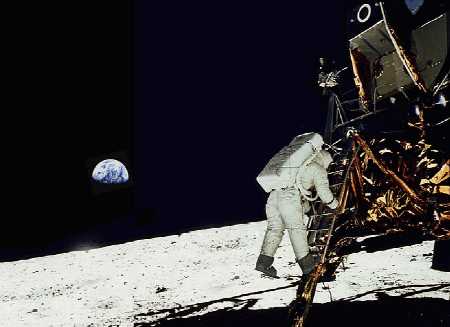
Very special day today: 50 years since the first human being orbited the earth. On 12th April 1961, Yuri Gagarin was launched by a Vostok rocket into space, and completed an orbit of the earth. He became an international celebrity and travelled the world to talk about his trip and promote the Soviet Union.
50 years on, I wonder what his legacy is? It took only 8 years – read that again, 8 years – to move from this very rudimentary flight to successfully landing men on the moon – perhaps the single most complex and awe-inspiring engineering feat humanity has achieved. It cost $24bn – the largest expenditure ever in peace time – and at its peak employed over 400,000 people.
The Apollo missions lasted just 3 years. Since then, no human has ever left the earth’s orbit. Nobody has done anything except what Gagarin basically did, which was to fly very high.
So what is the legacy of all the money and time and technology? The non-stick frying pan? A GPS system? A nice space telescope? Is that pretty much it?
My hope is that the legacy of Gagarin’s incredible flight will be this: it marked the birth of planet Earth. What he was able to see for the first time, and what all astronauts since have commented on, is Earth in its context: a precious, life-rich place in the midst of a very very empty universe.
Living on the surface of Earth it’s impossible to get this perspective. But what missions into space have given us are a sense of unity. Despite all our differences, we do inhabit the same place. We all call it home. And we should take care of it.
Though Gagarin was able to see more of earth than any human previously, it was only in the Apollo missions that the very first ‘full earth’ shot could be taken. Seeing our planet from that far away was a deeply profound experience for those on board, even more so for the twelve who saw Earth ‘rise’ as they walked on the moon.
In a way then, what we celebrate when we remember Gagarin’s trip is the birth of Earth as a unified object, and thus the birth of a ‘green’ consciousness. And for that reason our celebrations ought to take the form of looking after it as best we can.